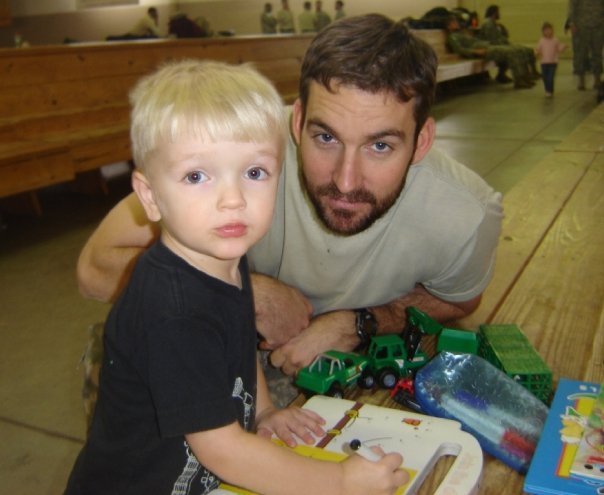Back in 2009, I was a Special Forces detachment commander in a remote part of Afghanistan. And over a period of eight days, five of my teammates were killed in combat, with a sixth being severely wounded. In the following weeks and months, I really struggled to find my way as a leader. It was the kind of loss and failure that I just couldn’t get my head around.
David Hurt - Marc Small - Jeremy Bessa
One day at the firebase, my CIA counterpart, who had been around the block a few times, pulled me aside and said to me, “Blayne, there will come a day when you stop blaming yourself for what happened, but you will always feel responsible.” I wasn’t quite sure what to make of that statement at first. Part of me felt relieved that some of the pain would eventually subside. Another part of me wondered if I’d simply carry this burden forever. In the years since, I’ve spent a lot of time thinking about the difference between blame and responsibility.
Tim Davis
Working through my own personal challenges, speaking with thousands of veterans, and working with hundreds of business leaders, I’ve come to fear that our society believes that taking responsibility for something requires us to take blame - which is unfortunate because it does not. In countless ways, we fail to make progress because we’re fixated on assigning blame, sometimes to others, but often to ourselves.
A recent conversation with my oldest son finally brought this into focus for me. I asked, “Hey bud, how would you describe the difference between blame and responsibility?” His answer was so succinct and powerful. He said, “Blame keeps you stuck in the past, but responsibility helps you move forward.” That seemed awfully wise for such a young man. For context, his mom and I divorced in 2012, and it hasn’t always been a smooth road for him and his brother. As anyone who has been through a divorce will attest, there is plenty of blame to go around. The parents may blame each other. The kids, sadly, will often blame themselves. Friends might take sides. Even in the best cases, it’s painful, and finding blame can offer a bit of relief or help you make sense of a disorienting situation. But blame doesn’t help us move forward. Responsibility does.
Dylan and Blayne pre-deployment
In the wake of a terrible event, we leaders, whether we’re parents, executives, or military commanders, have to embrace responsibility for the current situation and do our best to make it better. Regardless of who or what is to blame for how we got here, we are responsible for leading the way forward. We have to get past both our desire to find blame and our fear of being blamed and simply own our circumstances. Blame is rearward-looking. Responsibility is forward-looking.
Dalton and Blayne
One of my favorite authors, Seth Godin, often says that leadership doesn’t require you to have authority, but it does require you to take responsibility. We might also describe this as accountability (again, different than blame). We need more of us to step up and say, “I’ve got this” or “I’ll make sure this gets done” or “I’m sorry for what has happened, but I’ll do my best to make it right.” Who wouldn’t want a political candidate or their boss or their dad to look them in the eye and say that? It takes courage to sign on the dotted line and publicly take accountability for something important. And it takes more courage to say you’re sorry when things go wrong, but this is what we need.
My friend from the CIA was right. With a lot of help from friends and some time “on the couch”, I came to realize that while I was, and remain, responsible for the lives of my teammates, I can let go of the blame. I didn’t kill them, the Taliban did, and I have the rest of my life to make a positive impact on those affected by this kind of tragedy. The same goes for my boys. I’m not really sure, and I no longer care who's to blame for my first marriage ending, but I know that I am responsible for helping them to grow into happy, healthy young men regardless.
Blame is normal, but it’s not necessary. Responsibility > Blame.







